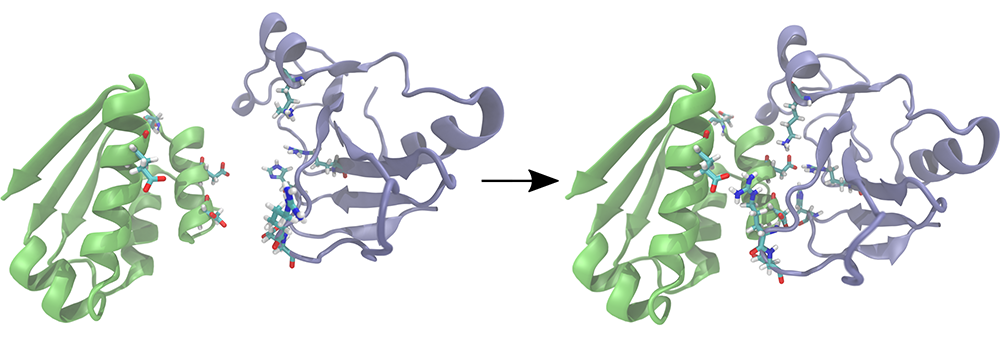Press release: KTH, PDC and AMD collaboration

KTH, PDC and AMD will collaborate on GROMACS and other key scientific applications for the Swedish and international research community.
The KTH Royal Institute of Technology and the PDC Center for High Performance Computing host the Swedish supercomputer Dardel , an HPE Cray EX system equipped with AMD EPYC™ CPUs and AMD Instinct™ MI250X accelerators that is funded by the National Academic Infrastructure for Supercomputing in Sweden (NAISS). The components from AMD contribute to Dardel being one of the most energy-efficient systems in the world today. (It is ranked #5 in the November 2023 edition of the Green500 list .) KTH and PDC will continue working with AMD in a new collaboration focusing on key scientific open-source applications where the code development is led by KTH and PDC, together with various other European institutes. The applications span several fields of science, from molecular dynamics to quantum chemistry and computational fluid dynamics.

The joint KTH-PDC/AMD collaboration, which will run for at least 30 months, will in particular, target the well-known and globally used molecular dynamics application GROMACS, as well as other world-leading software applications like NEKO (a portable and scalable framework for high-fidelity computational fluid dynamics) and VeloxChem (a quantum chemistry application developed for the calculation of molecular properties and simulation of a variety of spectroscopies).



Patrick Norman, Director of PDC, said, “PDC welcomes this joint effort with AMD on software optimisation as it will directly benefit both the Swedish and European research communities. This collaboration also aligns well with PDC’s long-term and more general commitment to the development of a range of scientific software applications to make sure they run efficiently on all architectures, including the Dardel system.”
Several aspects are being emphasised in the collaboration, including supporting ongoing design and development activities such as fine-tuning these applications and making sure they work on current and future AMD accelerators, as well as developing new code features to benefit scientific research.
“We are truly excited to be working with AMD and benefit from their expertise in the HIP language to achieve even better GROMACS performance and scaling on state-of-the-art GPUs, and particularly benefit from the very fast CPU-GPU communication in these systems.” said Erik Lindahl, Professor of Theoretical and Computational Biophysics at the Royal Institute of Technology.
As mentioned earlier, the collaboration will focus on GROMACS. Up to now, AMD has had its own GROMACS fork that relied on a HIP accelerator backend to sustain optimal performance on AMD Instinct Accelerators. The AMD GROMACS backend comes in a standalone mode, complementary to the existing upstreamed CUDA and SYCL backends. KTH-PDC and AMD will now work together to mainstream, optimise, and maintain the HIP backend, thus enabling the GROMACS community to get optimal performance from AMD Instinct-powered devices.
Brad McCredie, Corporate Vice President of Data Center and Accelerated Processing at AMD, adds, “AMD is committed to advancing state-of-the-art libraries and applications to the open-source, HPC and AI communities. This joint work with KTH and PDC will help advance high-performance computing (HPC) and assist molecular dynamics researchers to adopt AMD Instinct accelerators into their workflows.”
The collaboration agreement between KTH-PDC and AMD started in December 2023 and will continue for at least 30 months with one AMD full-time software engineer (with a strong background in computational chemistry and molecular modelling software) located at PDC and working closely with KTH-PDC research teams.
About KTH
KTH is the largest technical university in Sweden. It brings students, researchers, and teachers from around the world together to advance science and develop innovations to contribute to resolving global societal challenges (such as climate change, food and water security, future energy supply, and improved quality of life) through the development of sustainable solutions in different science fields, including the materials and life sciences, as well as energy-related research.
About PDC
PDC is an HPC centre at KTH that provides support for Swedish academic and industrial researchers who want to take advantage of HPC to further their research. PDC currently has the largest academic supercomputer in Sweden and Is also leading the development of several open-source HPC software packages in different scientific domains. PDC offers researchers both immediate access to AMD Instinct™ MI250X accelerators through Dardel to perform their numerical/AI simulations and expert support from leading application experts and research software engineers.

